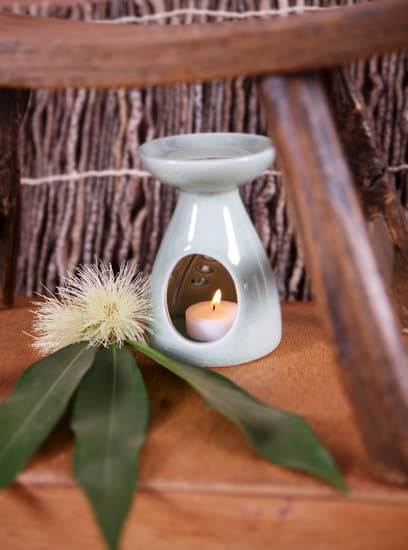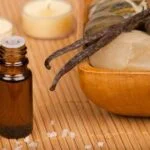Aromatherapy has long been used as a natural remedy for various ailments, including the common cold. But does aromatherapy work for colds? In this article, we will delve into the world of aromatherapy and explore its potential benefits for relieving cold symptoms.
Aromatherapy involves the use of aromatic essential oils derived from plants to promote physical and psychological well-being. When it comes to the common cold, which is characterized by symptoms such as congestion, coughing, and fatigue, many people turn to aromatherapy in search of relief.
Research has shown that certain essential oils can be effective in alleviating symptoms associated with the common cold. From clearing nasal passages to reducing inflammation, aromatherapy has been found to offer valuable support in managing these discomforts. In this article, we will discuss the specific ways in which aromatherapy can aid in providing relief from cold symptoms and explore the best essential oils for this purpose.
Benefits of Aromatherapy for Colds
Aromatherapy has been used for centuries as a natural remedy for various ailments, including the common cold. Research has shown that certain essential oils can be effective in providing relief from cold symptoms such as congestion, coughing, and inflammation. One study published in the International Journal of Nursing Practice found that inhaling essential oils like eucalyptus and peppermint helped to reduce respiratory symptoms in patients with upper respiratory tract infections.
The benefits of aromatherapy for colds can be attributed to the properties of specific essential oils. For example, eucalyptus oil is known for its decongestant and expectorant effects, making it useful for clearing nasal passages and relieving coughing.
Peppermint oil has analgesic and anti-inflammatory properties, which can help alleviate headache and muscle aches commonly associated with colds. In addition, essential oils like tea tree and lavender have antimicrobial and antiviral properties that may contribute to fighting off the germs causing the cold.
Inhaling essential oils through methods such as diffusion or steam inhalation allows the aromatic compounds to directly affect the respiratory system. These volatile molecules interact with receptors in the nasal cavity, throat, and lungs, triggering physiological responses in the body. This not only helps to relieve symptoms but also supports the body’s natural healing processes during a cold. Overall, there is substantial evidence to suggest that aromatherapy can work effectively for providing relief from colds when used appropriately.
| Essential Oil | Benefit |
|---|---|
| Eucalyptus | Decongestant and expectorant effects |
| Peppermint | Analgesic and anti-inflammatory properties |
| Tea Tree & Lavender | Antimicrobial and antiviral properties |
How Aromatherapy Works
Aromatherapy harnesses the power of essential oils derived from plants to promote physical and psychological well-being. When it comes to cold relief, aromatherapy can be particularly effective in alleviating symptoms such as congestion and coughing. The inhalation of certain essential oils can aid in clearing nasal passages and reducing inflammation in the respiratory system, providing much-needed relief for individuals suffering from colds.
There are several mechanisms through which aromatherapy works to alleviate cold symptoms. One of the primary ways is through the olfactory system-the sense of smell. When essential oils are inhaled, the odor molecules travel through the nose and interact with receptors, sending signals to the brain which can impact emotions, mood, and overall well-being. Additionally, some essential oils have antimicrobial properties that can help fight off infection and support the body’s immune response.
How Aromatherapy Works
- Olfactory System: Essential oils interact with olfactory receptors in the nose
- Emotional Impact: Aromas can affect mood and emotions
- Antimicrobial Properties: Some essential oils have natural antimicrobial properties
In addition to its effects on the olfactory system and emotional wellbeing, aromatherapy also produces physiological effects on the body. For instance, when inhaling essential oils like eucalyptus or peppermint, the active compounds in these oils can directly impact respiratory function by opening up airways and promoting easier breathing. This makes aromatherapy a holistic approach to managing cold symptoms that targets both physical discomfort and emotional distress.
Physiological Effects of Aromatherapy
- Respiratory Function: Certain essential oils can open up airways
- Ease Breathing: Aromatherapy promotes easier breathing during colds
- Pain Relief: Some essential oils have analgesic properties that help reduce discomfort
Best Essential Oils for Colds
Aromatherapy has been used for centuries as a natural remedy for various ailments, including the common cold. When it comes to relieving cold symptoms, certain essential oils have been found to be particularly effective. Research has shown that inhaling certain essential oils can help alleviate congestion, ease coughing, and reduce inflammation in the nasal passages.
One of the most popular essential oils for cold relief is eucalyptus oil. Its main component, eucalyptol, has been found to have decongestant properties, making it an effective remedy for nasal congestion caused by colds. Peppermint oil is another essential oil that is commonly used to relieve cold symptoms due to its ability to open up the airways and reduce coughing. Additionally, tea tree oil has antimicrobial properties that can help fight off the germs that cause respiratory infections.
When using essential oils for cold relief, it’s important to do so safely and effectively. Essential oils can be inhaled through steam inhalation or a diffuser, or applied topically when diluted with a carrier oil.
For example, a few drops of eucalyptus or peppermint oil can be added to a bowl of hot water for steam inhalation. However, it’s crucial to use caution when applying essential oils topically and always perform a patch test first to check for any skin sensitivities.
In addition to their ability to alleviate cold symptoms, essential oils also offer a natural and pleasant aroma that can promote relaxation and improve overall well-being during illness. When used properly, essential oils can be a valuable tool in managing the discomfort of the common cold without relying on over-the-counter medications.
| Essential Oil | Main Benefits |
|---|---|
| Eucalyptus Oil | Decongestant properties that alleviate nasal congestion |
| Peppermint Oil | Ability to open up airways and reduce coughing |
| Tea Tree Oil | Antimicrobial properties that fight off germs causing respiratory infections |
Aromatherapy Techniques for Cold Relief
Diffusing Essential Oils
One of the most popular ways to use essential oils for cold relief is through diffusing. This involves using an aromatherapy diffuser to disperse the scent of essential oils throughout a room. The inhalation of these oils can help clear nasal passages and relieve congestion. Popular essential oils used for this purpose include eucalyptus, peppermint, and tea tree oil.
Inhalation and Steam Therapy
Another effective method for using essential oils to relieve cold symptoms is through inhalation or steam therapy. Adding a few drops of essential oil to a bowl of steaming hot water and inhaling the steam can provide quick relief for congestion and sinus pressure. This method can also be used by adding a few drops of essential oil to a hot shower or bath.
Topical Application
In some cases, topical application of essential oils can also provide relief from cold symptoms. Popular carrier oils such as coconut or almond oil can be used to dilute essential oils such as lavender or rosemary before applying them to the chest, neck, or temples. This method may help alleviate coughing, sore throat, and headaches associated with a cold.
It is important to note that when using any of these aromatherapy techniques for cold relief, proper ventilation should be considered. While inhaling essential oils can provide numerous benefits, excessive exposure to concentrated amounts of certain oils may lead to adverse effects such as headaches or nausea. As with any alternative remedy, it is always recommended to consult with a healthcare professional before using aromatherapy for colds, especially for individuals with respiratory conditions or allergies.
Precautions and Considerations
When using aromatherapy for cold relief, it is important to take certain precautions to ensure safety and effectiveness. Essential oils are highly concentrated plant extracts, and as such, they should be used with care.
Important Safety Precautions
Before using any essential oil for cold relief, it is crucial to dilute them properly. Undiluted essential oils can cause skin irritation or allergic reactions when applied directly to the skin. It is recommended to mix essential oils with a carrier oil, such as coconut oil or almond oil, before applying them topically.
Additionally, some essential oils may not be suitable for children or pregnant women due to their potency. It is advisable to consult a healthcare professional before using aromatherapy for colds in these cases.
Considerations for Respiratory Conditions and Allergies
Individuals with respiratory conditions such as asthma or chronic obstructive pulmonary disease (COPD) should use caution when using essential oils for cold relief. Some essential oils may trigger respiratory symptoms in individuals with pre-existing conditions. It is best to seek guidance from a healthcare provider before incorporating aromatherapy into a treatment plan for colds.
Moreover, those with allergies should be mindful of potential allergens present in certain essential oils. For example, individuals allergic to ragweed may want to avoid chamomile essential oil. Conducting a patch test before using any new essential oil can help identify potential allergic reactions.
Other Natural Remedies for Colds
When it comes to finding relief for cold symptoms, aromatherapy is just one natural remedy that can be beneficial. In addition to using essential oils, there are several other natural remedies that individuals can explore to alleviate their symptoms and support their immune system during a cold. Here are some alternative options to consider:
- Herbal teas: Drinking herbal teas can help soothe a sore throat, relieve congestion, and provide a boost of hydration. Some popular options for cold relief include chamomile, ginger, and echinacea teas.
- Steam inhalation: Inhaling steam from a bowl of hot water or taking a warm shower can help loosen mucus in the nasal passages and provide temporary relief from congestion.
- Stay hydrated and rest: Ensuring that you drink plenty of fluids and get adequate rest is crucial for supporting your body’s immune response to the cold virus. Hydration helps thin mucus and keeps your throat moist.
In addition to these remedies, making lifestyle changes can also contribute to overall cold relief and prevention. Regular exercise, eating a balanced diet rich in vitamins and minerals, and practicing good hygiene habits are all important for maintaining a healthy immune system.
It is worth noting that while these natural remedies may provide some relief from cold symptoms, they should not be used as a substitute for medical treatment when necessary. It is always advisable to consult with a healthcare professional before trying any new remedies, especially if you have underlying health conditions or concerns about potential interactions with existing medications.
Overall, combining aromatherapy with other natural methods such as herbal teas, steam inhalation, and lifestyle changes can create a holistic approach to managing cold symptoms and supporting the body’s natural healing processes.
Conclusion
In conclusion, the question “Does aromatherapy work for colds?” can be answered with a resounding yes. The use of essential oils in aromatherapy has been shown to effectively alleviate symptoms of the common cold such as congestion and coughing. Research has demonstrated that certain essential oils have properties that can clear nasal passages, reduce inflammation, and support respiratory health, making them valuable tools in managing cold symptoms.
While the science behind aromatherapy is still being explored, its impact on the body in terms of providing relief from cold symptoms is undeniable. By inhaling essential oils through diffusing, inhalation, or topical application, individuals can experience improved respiratory function and overall comfort during times of illness. When used correctly and with proper precautions in mind, aromatherapy can be a safe and natural remedy for supporting the body’s ability to fight off colds.
In sum, the benefits of using aromatherapy for colds are clear. With a variety of essential oils to choose from and different methods of application available, individuals have the opportunity to tailor their aromatherapy approach to their specific needs during a time of illness. When combined with other natural remedies and supportive lifestyle changes, aromatherapy can serve as an effective tool in managing cold symptoms and promoting overall well-being.
Frequently Asked Questions
What Essential Oils Are Good for Colds?
Essential oils such as eucalyptus, peppermint, and tea tree oil are good for colds due to their antibacterial and decongestant properties. These oils can help relieve congestion, soothe a sore throat, and promote relaxation.
What Essential Oil Helps With Cold and Stuffy Nose?
Eucalyptus essential oil is known for its ability to help with cold and stuffy nose. Its cooling effect can open up the nasal passages, reduce inflammation, and provide relief from sinus pressure. It can be diffused or applied topically with a carrier oil.
How Do You Get Rid of a Cold Fast?
To get rid of a cold fast, it’s important to stay hydrated, get plenty of rest, and boost your immune system with vitamin C and zinc. Using essential oils in a diffuser or inhaling them directly can also help alleviate symptoms like congestion and coughing.
Additionally, over-the-counter medications may provide relief from symptoms while the body fights off the infection.

Are you looking for a natural way to improve your health and wellbeing?
If so, aromatherapy may be the answer for you.





